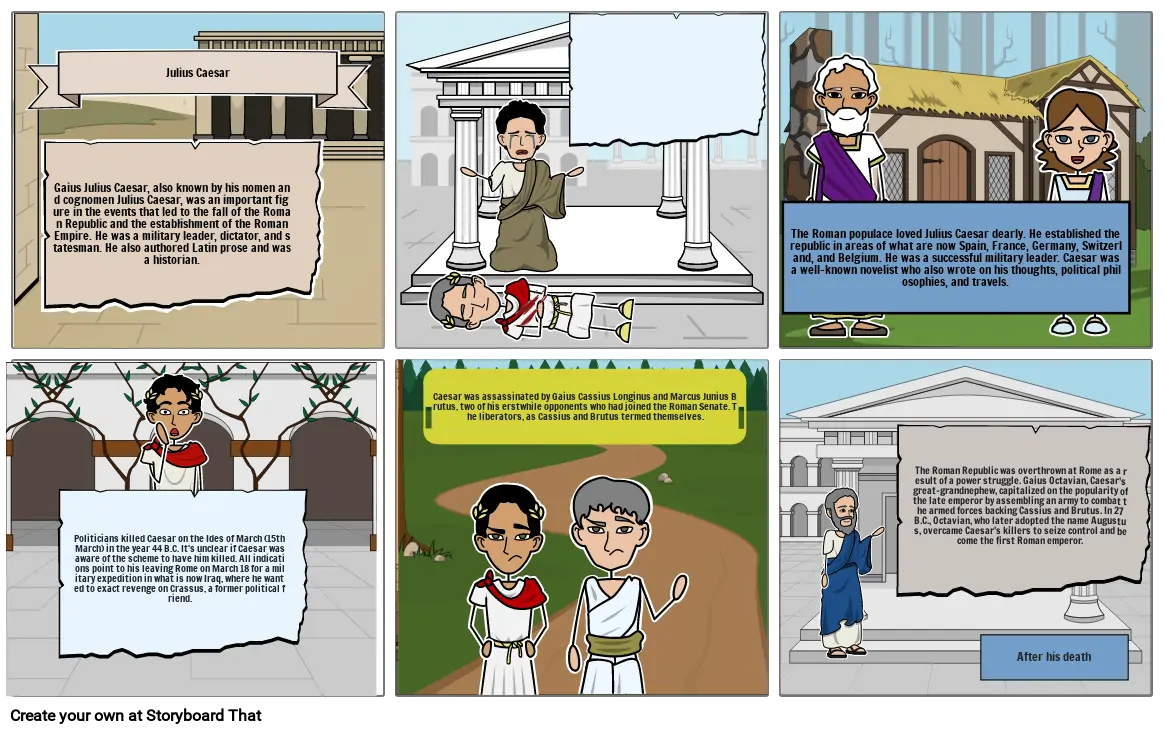ULIUS CAESAR POLITICAL CARTOON

Storyboard Text
- Julius Caesar
- ,
- Gaius Julius Caesar, also known by his nomen and cognomen Julius Caesar, was an important figure in the events that led to the fall of the Roman Republic and the establishment of the Roman Empire. He was a military leader, dictator, and statesman. He also authored Latin prose and was a historian.
- Julius Caesar was stabbed to death in Rome, Italy, on March 15, 44 BCE. Caesar was the ruler of the Roman Republic, and the senators who killed him were fellow politicians who influenced Roman law and order.
- The Roman populace loved Julius Caesar dearly. He established the republic in areas of what are now Spain, France, Germany, Switzerland, and Belgium. He was a successful military leader. Caesar was a well-known novelist who also wrote on his thoughts, political philosophies, and travels.
- Politicians killed Caesar on the Ides of March (15th March) in the year 44 B.C. It's unclear if Caesar was aware of the scheme to have him killed. All indications point to his leaving Rome on March 18 for a military expedition in what is now Iraq, where he wanted to exact revenge on Crassus, a former political friend.
- Caesar was assassinated by Gaius Cassius Longinus and Marcus Junius Brutus, two of his erstwhile opponents who had joined the Roman Senate. The liberators, as Cassius and Brutus termed themselves.
- The Roman Republic was overthrown at Rome as a result of a power struggle. Gaius Octavian, Caesar's great-grandnephew, capitalized on the popularity of the late emperor by assembling an army to combat the armed forces backing Cassius and Brutus. In 27 B.C., Octavian, who later adopted the name Augustus, overcame Caesar's killers to seize control and become the first Roman emperor.
- After his death
Over 30 Million Storyboards Created
No Downloads, No Credit Card, and No Login Needed to Try!
